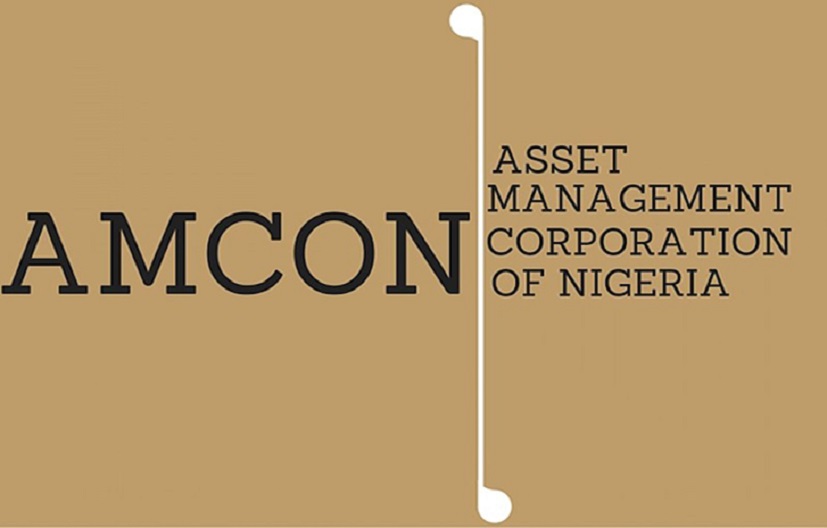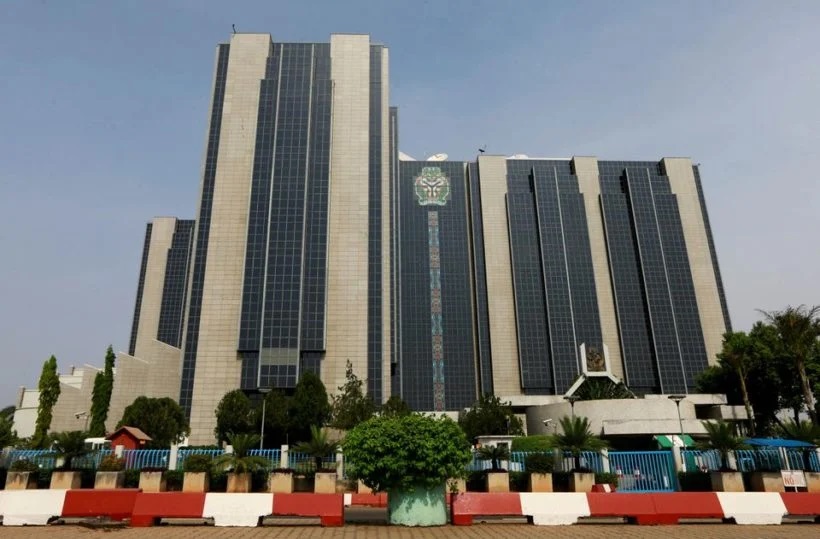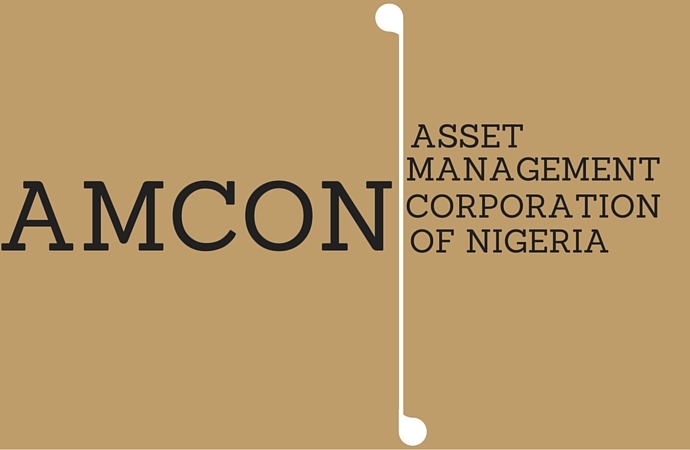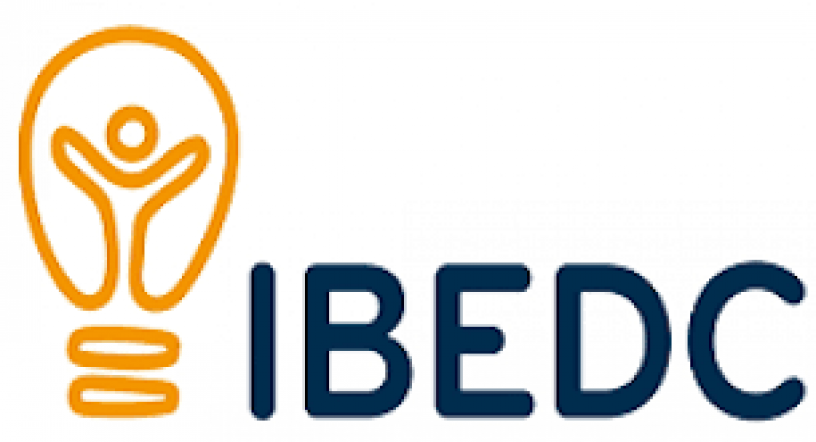Banking
Notes on the Asset Management Corporation of Nigeria Act Amendment Bill, 2021

By Kamsi Atuchukwu
INTRODUCTION
On 28 April 2021, the Nigerian Senate passed the Asset Management Corporation of Nigeria Act Amendment Bill, 2021 (SB.669) (“the 2021 Bill”) which proposes to amend the Asset Management Corporation of Nigeria Act No. 2, 2019. If assented to by the President, this will be the third amendment to the Act.
On 19 July 2010, the Asset Management Corporation of Nigeria Bill was signed into law and the Asset Management Corporation of Nigeria (AMCON/the Corporation) was established.
According to then-President Goodluck Jonathan, AMCON was expected to, amongst other things, stimulate the recovery of Nigeria’s financial system and the wider economy by buying the non-performing loans (NPLs) of banks, recapitalise the intervened banks and increase access to refinancing opportunities for borrowers.
The enactment came as a reaction to the endemic problems of poor accountability and weak oversight which were prevalent in the financial system at the time. The corporation was initially given a limited lifespan of 10 years, but, like the reactive amendments made to the Electoral Act since the birth of Nigeria’s Fourth Republic, several challenges have led to two amendments of the AMCON Act in 2015 and 2019.
A major obstacle faced by the corporation has been the penchant for debtors (under the Act, this includes borrowers, guarantors, and officers/shareholders of a debtor company) to frustrate and abuse the court process in a bid to stall the progress of recovery proceedings. These problems led to legislative innovations like the 2015 amendment which limited the effect of the corporation’s acquisition of an eligible bank asset (EBA) to the vesting of rights by deleting references to the word “obligations” in section 34(a), and the 2019 amendment which abolished injunctions and limitation of action in respect of AMCON claims.
It is worthy to note that these innovations have themselves faced objections, such as the argument regarding the constitutionality of section 34(6) of the AMCON Act which forbids orders of injunction against the corporation. Section 34(6) is the subject of a pending appeal at the Supreme Court.
The 2021 Bill has proposed some amendments which this work shall reveal and review.
PROPOSED AMENDMENTS
Besides the amendments to the citation and explanatory memorandum, the innovations sought to be introduced by the 2021 Bill are not as extensive as the previous amendments but are no less significant.
- Expansion of the Corporation’s Powers Over Debtor(s)’ Assets
Section 34 of the Act was amended in 2015 and 2019 and the 2021 Bill intends to further amend the section by substituting the existing subsections 1(a) and 1(b) with new provisions.
The proposed subsection 1(a) provides that, subject to the provisions of the Land Use Act and section 36 of the Act, upon acquisition of an EBA, the corporation shall acquire legal title to the EBA and all assets, tangible and intangible, “belonging to, traced to and in which the debtor has an interest in, whether or not such assets or property is used as security for the eligible bank asset”.
However, the 2021 Bill specifically limits the power of sale by the corporation under this subsection by providing that only assets used as security for the EBA may be disposed of by the corporation in satisfaction of the debt, even if the interest of the debtor in such an asset is merely equitable.
The proposed subsection 1(b), which deals with the registrability of title transfer documents executed by the corporation, provides that:
“Any certification of sale or certificate of transfer of title executed by the corporation in the exercise of its powers under subsection (1) (a) above shall constitute a valid registrable instrument under all applicable land registration laws applicable in the federation and in all Land and Corporate Registries in the Federation”.
Like the extant Section 45(2) of the Act which provides that a certificate of judgement in an AMCON claim is a registrable instrument, the proposed section 34 (1)(b) validates as registrable instruments, all certificates of sale and transfer under section 34 (1)(a).
By this, the corporation can validly register any documents executed as evidence of acquisition of assets traced to a debtor at all land registries and the Corporate Affairs Commission, even though these assets were never pledged as security for the EBA.
- Commencement of AMCON Claims at the Special Tribunal Established under the BOFIA
The Banking and Other Financial Institutions Act 2020 (BOFIA 2020), in section 102, established the Special Tribunal for the Enforcement and Recovery of Eligible Loans (the Tribunal). Under section 115 (1) of the BOFIA 2020, the Tribunal will have the jurisdiction to adjudicate over matters:
- pertaining to the enforcement and recovery of eligible loans by financial services banks, specialized banks or other financial institutions; and
- connected with or pertaining to the enforcement of security or guarantee, or attachment of any asset under an eligible loan made by any bank, specialized bank, or other financial institution in Nigeria, to its customers.
It must be stated that the matters above are not exhaustive as subsection (5) provides that the Tribunal shall exercise jurisdiction on any other matter as may be prescribed by an Act of the National Assembly.
Since the passing of the BOFIA 2020, there have been arguments in legal circles on whether the corporation is a financial institution within the meaning of the BOFIA.
The proposed section 54(1) and (2) of the AMCON Act aims to settle this point as it empowers the corporation with the discretion to commence debt recovery actions at the Tribunal and the Rules and Practice Directions of the Tribunal shall apply in such an action. Sub-section (2) allows the corporation to apply for special orders availed to eligible financial institutions under BOFIA and bring applications before the Tribunal under the provisions of the AMCON Act.
The intendment of the suggested section 54(1) and (2) would appear to be the need to protect the time-bound corporation from protracted litigation. Previous moves have been made to achieve this. The first major one was the designation of AMCON Track Judges of the Federal High Court and the inclusion of appeals by or against the corporation as fast track appeals under the Court of Appeal (Fast Track) Practice Directions 2014.
While one must admit that AMCON claims have gained more traction after these interventions, they have proven rather insufficient. It is for this reason that some legal commentators have suggested the statutory creation of special courts or tribunals for the resolution of AMCON claims.
The proposed section 54(1) and (2) will certainly be a positive step towards achieving a timely resolution of AMCON claims. It must be noted, however, that if the 2021 Bill is signed into law, the commencement of actions at the Tribunal remains at the discretion of AMCON and without prejudice to the jurisdiction of the Federal High Court.
The Federal High Court remains a competent court for the adjudication of debt recovery claims by the corporation. This is unarguable given the proposed section 61(c) which defines “Court” as:
“[T]he Federal High Court, the Special Tribunal for Enforcement & Recovery of Eligible Loans and other superior courts exercising appellate jurisdictions over the Federal High Court and the Special Tribunal for Enforcement & recovery of Eligible Loans”.
- Registrable Instruments of Title at Land Registries
The 2019 amendment introduced section 45 (2) which provides that a certificate of a judgement obtained in a proceeding constitutes a registrable instrument of title in favour of the corporation in all land registries in Nigeria.
The proposed amendment to this subsection seeks to expand the scope of registrable instruments to include “any document presented by the corporation as evidencing title, whether legal, equitable or traced in a property…”.
While a registration based on a certificate of judgement should be a seamless exercise, a registration based on “any document presented by the corporation” may be met with some practical challenges especially in view of the provisions of some existing land instrument registration laws.
For example, section 74(1) of the Lagos State Land Registration Law (Cap L41, Laws of Lagos State 2015) provides that dealings in land shall be effected by deed and section 74(3) of the Law provides that “[a] document for which no form is provided shall be in such manner as the Registrar may approve”.
If the 2021 Bill is signed into law, it would be necessary for the corporation to launch an awareness drive directed at all institutions whose operations may be impacted by the amendment. Examples of such institutions are the land registries of all the states.
- Tenor and Dissolution date of the Corporation
Section 61 of the AMCON Act was affected by the two previous amendments and the 2021 Bill proposes further amendments in the manner below:
- The amendment of the meaning of the word “tenor” as used in Part IX of the Act to mean “a period of 5 years from the expiration of the current tenor but may be extended by a resolution of the National Assembly for such further period as the corporation may determine with the approval of the Central Bank of Nigeria”.
The 2015 amendment had defined “tenor” as a period of 10 years from 2010 which may be extended by the National Assembly for a period not exceeding 5 years.
The proposed amendment suggests that the drafters envisage the possibility that the corporation would be around for a much longer time than initially envisioned. This is not a surprise given the many AMCON claims pending at trial courts and its over N4 trillion debt portfolio.
- The introduction of a definition for the phrase “dissolution date” which means “a date to be determined by the Board of Directors of the corporation with the approval of the Central Bank of Nigeria”.
This is a correction to an omission in the 2019 amendment where the phrase “dissolution date” was introduced in section 47 (which deals with the appointment of liquidators to wind up the corporation on that date), but no definition was provided. Like the amendment to the meaning of “tenor” this new definition also indicates that the drafters of the 2021 Bill forecast a longer lifespan for the corporation.
- As stated earlier, the definition of “Court” has been amended to mean “the Federal High Court, the Special Tribunal for Enforcement & Recovery of Eligible Loans and other superior courts exercising appellate jurisdictions over the Federal High Court and the Special Tribunal for Enforcement & recovery of Eligible Loans”.
- Apart from the introduction of the Special Tribunal, the significant difference in this definition is the deletion of the High Courts of the State and the FCT which were introduced in the 2019 amendment. A strict interpretation of the 2019 definition means that AMCON recovery claims can be commenced at the High Courts of the State and the FCT and the 2021 Bill aims to reverse that deviation.
CONCLUSION
The previous amendments to the AMCON Act have attracted immense reactions, both in the courts and in public discourse. This trajectory is unlikely to change if the 2021 Bill is given presidential assent without any changes.
Media reports on the third reading at the Senate indicate that there was opposition to certain aspects of the 2021 Bill by some Senators, most of whom expressed their dissatisfaction with the proposal to amend section 34 to grant the corporation legal title to all the assets of a debtor, even where such assets were not used as security for the eligible bank asset. It will not be a surprise if that is only a prelude to what is to come.
The main goal of drafters of all amendments to the AMCON Act would appear to be the need to assist the corporation in achieving its mandate timely and effectively.
Senator Uba Sani, Chairman of the Senate Committee on Banking, Insurance and other Financial Institutions, expressed this rationale during the presentation of the 2021 Bill which he said will “provide for a quicker, easier and legitimate process of assets disposal.”
However, extremely controversial amendments can create a catch-22 in that they can open a pathway for a barrage of objections. These objections can create a deviation from the corporation’s debt recovery claim and ultimately lead to a longer time spent in the recovery process, especially as such issues would be considered as recondite points of law on appeal. The Executive should consider the need for balance while reviewing the 2021 Bill for assent.
Kamsi Atuchukwu, a legal practitioner, writes from Lagos, Nigeria.
Banking
We Now Pay Depositors of Failed Bank Within Days—NDIC

By Adedapo Adesanya
The Nigeria Deposit Insurance Corporation (NDIC) says depositors of failed banks in Nigeria can now access their insured funds within days.
The corporation said the development is a part of ongoing reforms aimed at strengthening confidence in the country’s financial system.
The chief executive of NDIC, Mr Thompson Sunday, disclosed this on Thursday at the NDIC Special Day of the 47th Kaduna International Trade Fair, noting that recent interventions had significantly improved the speed and efficiency of depositor compensation.
Represented by Mrs Regina Dimlong, the Assistant Director of Communications and Public Affairs, Mr Sunday said the corporation had successfully deployed the Bank Verification Number (BVN) system to facilitate prompt payments to customers of recently failed banks, including Heritage Bank Limited, Union Homes Plc and Aso Savings and Loans Plc.
“Depositors were paid within days of closure without the need to fill physical forms or visit NDIC offices.
“This is a part of our reform efforts to make depositor protection faster, simpler and more transparent,” he said.
According to him, the reforms were designed to restore public confidence in the banking system and prevent panic withdrawals, especially during periods of financial stress.
Mr Sunday explained that NDIC’s mandate spans deposit insurance, bank supervision, distress resolution and liquidation of failed banks, adding that the Corporation works closely with the Central Bank of Nigeria (CBN) to ensure early detection of risks in insured institutions.
He disclosed that in 2024, NDIC reviewed its deposit insurance framework, increasing coverage for depositors of Deposit Money Banks, Mobile Money Operators and Non-Interest Banks to N5 million, while customers of Microfinance Banks, Primary Mortgage Banks and Payment Service Banks are now covered up to N2 million.
He noted that the revised thresholds now guarantee full protection for about 99 per cent of depositors nationwide, particularly small savers and low-income earners.
The NDIC boss urged Nigerians to ensure their BVNs are properly linked to their bank accounts, stressing that this had become the primary channel for accessing insured deposits in the event of bank failure.
Banking
Nigeria Gets Permanent Seat on African Central Bank Board

By Adedapo Adesanya
Nigeria has secured a major strategic gain at the ongoing 39th African Union Summit, after securing a permanent seat on the board of the African Central Bank.
The Minister of Foreign Affairs, Mr Yusuf Tuggar, confirmed this at the summit on Friday, highlighting it as a significant milestone for both Nigeria and the West African region.
The African Central Bank (ACB) is one of the original five financial institutions and specialised agencies of the African Union (AU).
“Importantly, Nigeria has been given the hosting of the African Monetary Institute and the African Central Bank. Not only that, in today’s plenary, Nigeria was confirmed a seat on the board of the African Central Bank. This is huge,” he said.
He stated that the development represents a diplomatic breakthrough, mentioning that the move faced initial opposition from some member states.
“It is something that was initially resisted by some countries, so now we have a permanent seat on the African Central Bank board. It’s a major success,” he added.
This year’s summit carries the theme Assuring Sustainable Water Availability and Safe Sanitation Systems to Achieve the Goals of Agenda 2063, the sessions will focus on advancing continental commitments to sustainable water management and improved sanitation, critical pillars for health, agricultural productivity, and the broader development aspirations of the AU’s Agenda 2063 framework.
Beyond financial governance, Nigeria and the West African bloc also recorded progress in elections to the Peace and Security Council, the African Union’s highest decision-making body on conflict and security matters.
The delegation announced that “Côte d’Ivoire, Sierra Leone, and the Republic of Benin have been elected,” with Benin securing a fresh term while the other two countries were re-elected.
The Peace and Security Council also convened to deliberate on the situations in Sudan and Somalia. Nigeria voiced strong reservations over Sudan’s potential readmission into the continental body.
“Nigeria voiced its reservations about Sudan being readmitted because, as you know, there are two warring factions in Sudan,” Tuggar stated.
“We reminded the Peace and Security Council that we have to abide by the rules and regulations of the African Union. If there has been an unconstitutional change of government, then the country should not be allowed to participate, and that was carried.”
The summit also outlined its 2026 theme: water sustainability. The Nigerian representative underscored the country’s strategic and demographic significance in advancing that agenda.
“Nigeria was created out of the confluence of the River Niger and the River Benue. So water is very important,” he said.
“We are the largest country in Africa, with a population of 230 million people. We’re going to be 400 million in the next 24 years. So water is a source of life. It’s very important, and we’re playing a very pivotal role in implementing the programs that are being set for the theme of the year.”
Banking
Standard Bank Hosts 2nd African Markets Conference

By Modupe Gbadeyanka
The second African Markets Conference (AMC) will take place in Cape Town, South Africa, from Sunday, February to Tuesday, February 24, 2026.
The event, hosted by Standard Bank, will bring together global institutional investors, sovereign wealth funds, and African policymakers to catalyse the flow of capital into the continent’s most critical sectors.
The theme for this year’s edition is Mobilising Global Capital at Scale for Africa’s Growth and Development.
AMC 2026 will host a high-level delegation of decision-makers, ensuring that the dialogue leads to tangible commitments.
The conference will be structured around five high-impact pillars designed to move the needle on investment, including prioritising infrastructure as an asset class, accelerating the energy transition, deepening African capital markets and mobilising private capital, enabling intra-African trade and flows of capital, and addressing Africa’s sovereign debt and cost sustainability.
It is estimated that by 2050, Africa will add one billion people, more than half in cities, yet it invests only $75 billion of the $150 billion it needs annually for infrastructure. Standard Bank aims to use AMC 2026 to ensure that African priorities remain at the centre of the global financial discourse.
“This year’s engagement bridges the gap between policy ambitions and market realities. Africa urgently needs practical measures to deepen capital pools, improve market liquidity, and strengthen regulatory frameworks that give investors the confidence to deploy capital at scale.
“Mobilising capital is not just about funding projects; it is about building the foundation of a more balanced and inclusive global economy,” the chief executive of Corporate and Investment Banking at Standard Bank Group, Luvuyo Masinda, stated.
-

 Feature/OPED6 years ago
Feature/OPED6 years agoDavos was Different this year
-
Travel/Tourism10 years ago
Lagos Seals Western Lodge Hotel In Ikorodu
-

 Showbiz3 years ago
Showbiz3 years agoEstranged Lover Releases Videos of Empress Njamah Bathing
-

 Banking8 years ago
Banking8 years agoSort Codes of GTBank Branches in Nigeria
-

 Economy3 years ago
Economy3 years agoSubsidy Removal: CNG at N130 Per Litre Cheaper Than Petrol—IPMAN
-

 Banking3 years ago
Banking3 years agoSort Codes of UBA Branches in Nigeria
-

 Banking3 years ago
Banking3 years agoFirst Bank Announces Planned Downtime
-

 Sports3 years ago
Sports3 years agoHighest Paid Nigerian Footballer – How Much Do Nigerian Footballers Earn

















